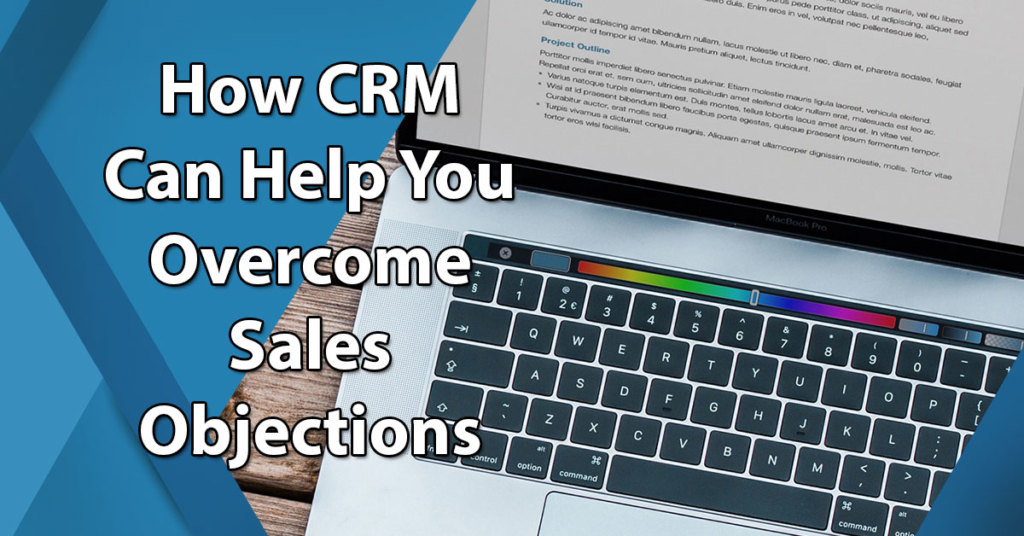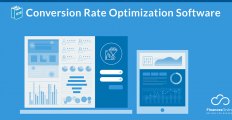Sales objections happen even to the best salespeople. As hard as they try to guide prospects through the sales funnel, even the best sales reps may have a hard time convincing prospects to buy. This unpleasant scenario is quite common in the sales world, but it doesn’t have to mean that customers don’t like your products.
Instead, what makes sales objections a regular part of any sales cycle is the nature of the buyer to be reluctant. Think of your own shopping experience — were you ever completely sold to everything a sales rep had asked? Neither are your customers, and they can come up with dozens of excuses not to close the deal.
So it sounds that there is no getting around sales objections. Yet, there is something you can do to stay on the same wavelength with your customers, and that’s being prepared to act in case your offer is refused. If you have a CRM solution implemented in the process, you already have the most powerful asset, all you have to do is optimize the use of your CRM. Otherwise, you may want to learn more about this sales and marketing discipline and what tools are available out there. For starters, you should understand the basics of CRM software, including the benefits, types and key features.

Overcoming sales objections with CRM
Why do sales objections happen?
As we already mentioned, sales objections are not necessarily related to customers disliking your product or service. They are usually prevented from buying it because of typical sales mistakes, and especially your approach to selling it.
Here are some probable scenarios:
- Too much pressure – Many sales teams face the problem of not being able to qualify leads right. This often results in pushing quality prospects towards closure when they’re obviously not ready to buy, and makes them feel forcibly included in a campaign.
- The risk factor – This objection is very much related to the previous one. You may have caused lack of trust, and that’s a serious issue for many buyers. The most affected ones are those you’ve reached out to for the first time; it takes an experienced agent to pull such deals through, as he can address financial and other concerns without losing focus on selling.
- Lack of funds – Even as your products/services are not out of reach for some prospects, they may use price as an excuse. In such case, you should suggest a plan suited to their budget restrictions.
- Competition – The reason why your buyer is being so nitpicky is that he knows he has a choice. While looking at your product, he’s looking at possibly dozens of other products and comparing which one works best for him. If you can’t outstrip competitors with solid arguments, objection is almost guaranteed.
- Non-authorized buyers -Sometimes the prospects you’re targeting are not authorized to approve your deal. These prospects, however, are not lost – you can always turn them into advocates of your product, and have them recommend it to the right person in their organization.
Whatever objections you get, don’t consider them as rejections. You are still in the game, and there is still time to close great deals. This is where CRM can enhance your sales techniques.
Tip: Our tips here will depend on you having a solid CRM system. After a series of use case analyses and testing of features, our team of expert reviewers concludes that HubSpot has one of the best frameworks to build your CRM on, including integration with marketing and service systems. You can easily sign up for HubSpot CRM free app here.
How can your CRM help you overcome sales objections
It is not that difficult to recognize the relationship between CRM tools and successfully closed deals. When you know who you are selling a product to, you know exactly when to sell it and how to sell it.
What’s the role of your CRM? This system helps generate leads, segment, and qualify them so salespeople can customize their outreach. Next, it provides sales reps with a historical overview of all customer interactions, and valuable intelligence on how to approach each and every objection.
Basically, CRM software has its ways of handling sales objections before they’ve happened, while they’re happening, and after they’ve happened. It can also help you build your own sales process.
1. Preventing sales objections – Preparing your agents to react
Better safe than sorry! Your product may be as perfect as you want, but you still have to make it perfectly sellable.
First, accept the idea that not everyone shares your opinion. Instead of buying immediately, customers may get confused, and you got to know how to get them back on track.
Second, let your CRM do the prep work. Salespeople use CRM software to gather intelligence and create a database including previous customer objections. Regardless if the objections were successfully handled, each objection is recorded in a special database, with a tag that makes it easy to find. This way, agents have enough saved information to deal with new objections, even if they deal with a client for the very first time. Remember – there is no such thing as a ‘never-gonna-happen-again objection’. Whatever the reason was, note it down.
Another important thing you should be doing is linking leads to particular objections. This will help the agent customize his approach to a particular customer, and to prepare for any response.

A Good CRM like HubSpot can give you a 360-degree view of the customer or prospect, including profile details and engagement history.
2. Handling sales objections – Automating actions in your CRM
How do CRM systems help handle sales objections? The answer lies in their modern lead qualification process. They don’t simply drive customers your way, but they examine their buying capacity (foremost in terms of budget and influence), giving you a more or less clear picture of what objection they might have. Sales automation tools can be maximized to achieve this objective.
3. Prioritizing deals
How does that work? Many CRM systems feature a deals pipeline where you can track prospects and open a process bar where you can add all necessary information. Based on the data you’ve entered, your CRM associates all customer records and comes up with probability indicators, which means that it won’t be difficult to prioritize deals that are ready to convert.

A CRM software makes it easy to track your deals and associate them with the prospect’s details for context.
4. Relating leads to common objections
Since you already have tags where all objections and customers are related, it won’t be an issue to automate actions within your CRM to stay on the safe side. You can set your customer relationship management tool to generate preset emails and messages for each of the tagged objections, allowing you to prepare just the right content for each target audience.
5. Using objection intelligence to improve your campaigns
You can use the objections info to improve ad campaigns on search engines and social media platforms (note that these may require to identify your prospects data before your campaign is put into action). Facebook, for instance, lets you generate specific ads for each objection by asking you to create custom audiences and customer files. Google AdWords, on the other hand, works with re-marketing campaigns – it invites you to add audience targeting to custom campaigns based on your common objections.
A useful tactic is to create custom ads based on customer objections. Most CRMs offer templates that meet all quality requirements, and which can be optimized for optimal results.
Note that all your ads will be ranked according to their relevance, so do your best to prepare effective content.
6. Making on-point offers
Last but not least, do not (under any circumstances!) create pressure on your buyer. Your automated messages and requests should give buyers the option to refuse, including the possibility for your customer to block your future messages. CRM software’s messages come with a number of custom fields, so it won’t be difficult to send a clear and on-point offer.

A good CRM should be able to integrate with marketing or your other campaign tools for target messaging, in this case, the HubSpot Live Chat allows you to target contacts from your HubSpot CRM.
Learning from sales objections – You’ve already become a better salesperson
Getting a good CRM is a small price to pay for customer acquisition, even if you’re running a really small business. In fact, you can get it for free when you sign up for the HubSpot CRM free app here. However, you’re still the brain of the operation. Invest some time into optimizing your CRM as it has sales automation functions that offer unique benefits. Keep an eye on the connections you’ve created to ensure they’re in line with your campaigns. If the features of your CRM don’t correspond to your needs, it is not too late to change it. Whatever it takes – do it!


























Leave a comment!